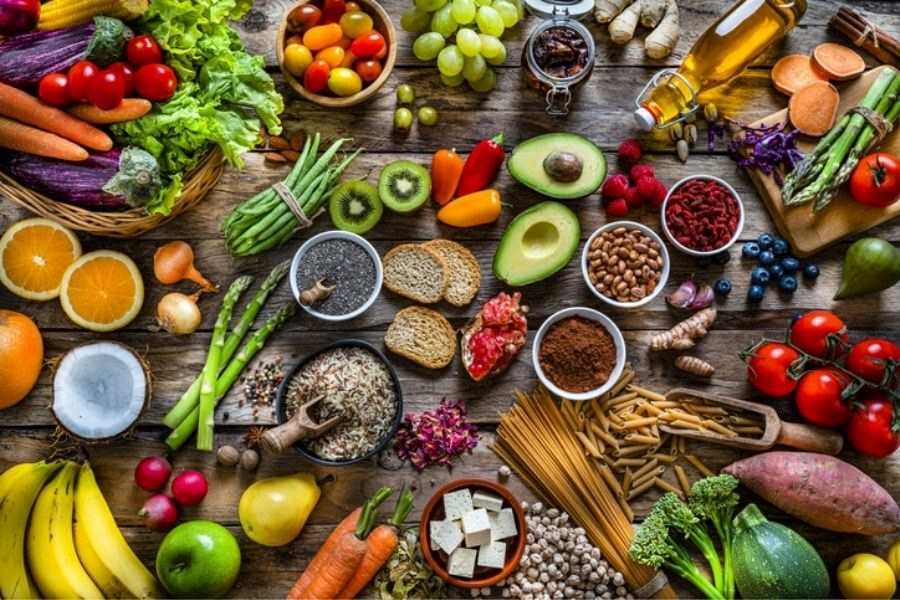The Essentials of Nutrition: Nourish to Thrive, Not Just Survive

- March 1, 2025
- Rutuja Bhagwat
- 10:55 am
Food is nutrition, and it is meant to nourish our body. Anything that does not nourish or truly energise our body should not be called food. I often wonder in amazement why we still have McDonalds and KFC and other fast-food restaurants. It is very clear from experiments and research that this junk food is bad for you. But there is also a lot of confusion created by new research or misinterpreted one-off studies, which create headlines on social media, blogs and YouTube. You will find at least one study to support the claim that what you are eating is good for you. We also have social media trends around food, for example Asian food has become quite popular during the pandemic on videos and a lot of people have been seen attempting to try their hand at Spicy Asian Cucumber Salad or Tamagoyaki, Japanese rolled omelette.
Before we dive into what you should or should not eat, we need to thank our body for everything it does, it is quite a dynamic process, and it keeps everything in order so “Body, Thank you”.
What is Your Goal to Eat This Way?
It is important to learn what your goal is for the type of nutrition you will choose. Are you wanting to build muscle, or wanting to cleanse your body or is longevity your goal? Once, you know what your goal is, that is half battle won. With the intention in mind, we are no longer a ship in the sea, waving and swaying where the water drags us. We now have a path.
Scale of Commitment
Commitment to nutrition is a vital step in achieving your health goals. Whether you’re inspired by a fleeting online video or genuinely ready for long-term change, your level of commitment determines your success. Think of it as a scale from 1 to 10—where 1 is a passing thought and 10 is a fully integrated lifestyle shift.
Body Composition & Awareness
Understanding your body is the first step. Use tools like the TDEE (Total Daily Energy Expenditure) calculator to determine how many calories you burn daily. This helps tailor your diet and exercise plan for muscle gain, fat loss, or maintenance.
If you’re serious about long-term health, consider getting a full physical and blood work done. Understanding your hormonal balance, vitamin levels, and metabolic health provides deeper insights into what your body needs.
Setting Your Intentions
What is your intention to eat this way, do you have a goal in mind. Some general goals we have could be;
- Build muscle – Prioritize protein intake and strength training.
- Lose weight – Focus on a calorie deficit with nutritious, whole foods.
- Increase energy & focus – Balance macronutrients and stay hydrated.
- Improve skin & digestion – Reduce processed foods, eat more fiber and healthy fats.
Men and Women Nutritional needs
Men and women are biologically different and so are our nutritional needs, some of the key things to remember when you plan your nutrition could be;
- Macronutrient Needs – Men generally require more protein to support muscle mass, while women benefit from a balanced intake of healthy fats to support hormonal health, especially during menstrual cycles, pregnancy, or menopause.
- Iron & Calcium Intake – Women need more iron due to menstrual blood loss and higher calcium for bone health, whereas men should monitor excess iron intake, as their bodies store it more efficiently.
- Metabolism & Energy Balance – Men typically have a higher metabolism due to greater muscle mass and can tolerate higher-calorie diets, while women’s energy needs fluctuate with hormonal cycles, requiring more mindful nutrient timing.
Age-Appropriate Eating
Nourishing your body according to age can help build a strong foundation for our general health, some points to remember with age related nutrition
- 20s & 30s: Focus on nutrient-dense foods to support metabolism and muscle growth. Prioritize lean proteins, healthy fats, and complex carbohydrates. Experiment with intermittent fasting if it suits your lifestyle.
- 40s & 50s: As metabolism slows, be mindful of portion sizes and incorporate more fiber-rich foods, such as vegetables, legumes, and whole grains. Consider eating less refined sugar and processed foods.
- 60s & Beyond: Support bone health with calcium and vitamin D-rich foods. Eat more anti-inflammatory foods like berries, nuts, and leafy greens while maintaining adequate protein intake to prevent muscle loss.
FAQs Based on Blog Content
Q1: Why is setting a nutrition goal important?
A clear goal—like weight loss, muscle gain, or energy improvement—gives your eating habits purpose and direction, making it easier to stay committed.
Q2: How is men’s nutrition different from women’s?
Men generally need more protein due to muscle mass, while women often need more iron and healthy fats to support hormonal health.
Q3: What does age-appropriate eating mean?
As we age, our metabolism and nutrient requirements shift. Tailoring your diet to your life stage supports long-term vitality and disease prevention.
Q4: Can nutrition improve mental focus and energy?
Yes! Balanced macronutrients, hydration, and the right vitamins can significantly enhance mental clarity and sustained energy levels.
Q5: How can Serenova Coaching help me with my nutrition?
We offer personalized coaching based on your health goals, lifestyle, and body type. From diet planning to accountability, we guide your journey step-by-step.
